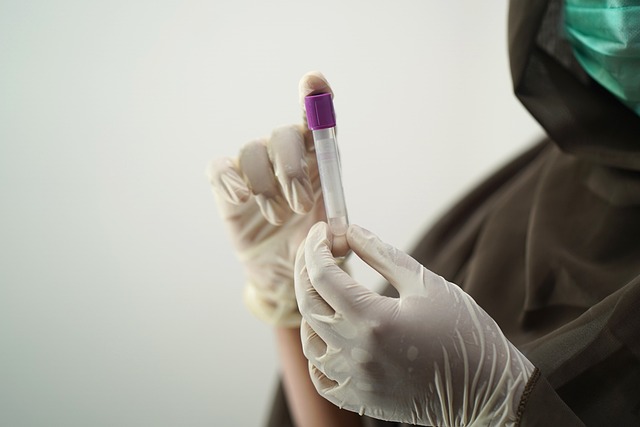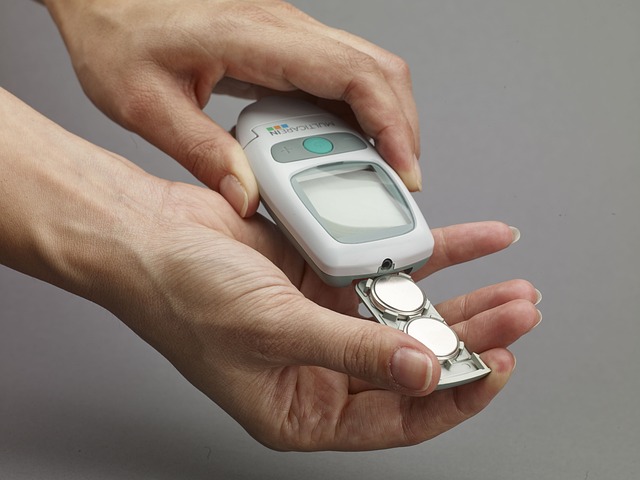In the UK, maintaining cardiovascular health and hormonal balance is achieved through regular monitoring of cholesterol and testosterone levels. The Testosterone Blood Test UK, a non-invasive diagnostic tool available in accredited medical facilities, provides accurate assessments after a patient fasts for at least six hours. This test measures hormone levels against established reference ranges and can indicate normal or imbalanced conditions that may necessitate testosterone replacement therapy, as offered by the NHS for hypogonadism and other related health issues. Similarly, a comprehensive cholesterol blood test evaluates total cholesterol, LDL ('bad') cholesterol, HDL ('good') cholesterol, and triglycerides to understand one's lipid profile and its influence on heart disease and stroke risk. Healthcare providers interpret these results considering individual factors to guide dietary, exercise, and lifestyle changes or medical treatments. Regular testing through the Testosterone Blood Test UK and cholesterol assessments are crucial for informed health decisions, aiming to prevent chronic diseases and maintain overall well-being.
Blood tests are invaluable tools in the medical arsenal, providing insights into our body’s composition and function. Among these, testosterone blood tests stand out for their importance in men’s health monitoring. This article delves into the significance of measuring cholesterol levels through such tests, with a focus on the UK context. We will explore the relationship between cholesterol and testosterone, the process of undergoing a testosterone blood test in the UK, and how to interpret the results for better health management. Understanding these aspects is crucial for men to maintain their well-being and address potential issues early on.
- Understanding Cholesterol and Testosterone: The Role of Blood Tests in Health Monitoring
- The Process of a Testosterone Blood Test in the UK: What to Expect
- Interpreting Your Test Results: Managing Cholesterol and Testosterone Levels for Optimal Health
Understanding Cholesterol and Testosterone: The Role of Blood Tests in Health Monitoring

Comprehending the interplay between cholesterol and testosterone is pivotal for maintaining cardiovascular health and hormonal balance. Cholesterol, a waxy substance found in the blood, plays a crucial role in cell function, yet high levels can lead to plaque build-up in arteries, increasing the risk of heart disease and stroke. Testosterone, the primary male sex hormone, influences various bodily functions, including muscle mass, bone density, and fat distribution. Elevated cholesterol levels can affect testosterone production and vice versa, highlighting the importance of regular health monitoring. In the UK, a testosterone blood test is a simple, diagnostic procedure that measures the amount of testosterone in the bloodstream. This test is vital for identifying hormonal imbalances or deficiencies that could indicate underlying health issues. Similarly, a cholesterol blood test, widely available across the country, assesses total cholesterol, LDL (low-density lipoprotein) cholesterol, HDL (high-density lipoprotein) cholesterol, and triglycerides levels. This comprehensive analysis enables individuals to understand their cholesterol and testosterone profiles, facilitating informed decisions about lifestyle changes or medical interventions that could significantly improve overall health outcomes. Regular monitoring through these tests allows for early detection of potential issues, paving the way for timely and effective management of both hormonal health and cardiovascular risk factors.
The Process of a Testosterone Blood Test in the UK: What to Expect

In the United Kingdom, assessing testosterone levels is a straightforward process that involves a blood test, specifically a Testosterone Blood Test UK. This procedure offers insights into an individual’s hormonal health and is conducted in accredited medical facilities or by qualified healthcare professionals. Prior to the test, it is advisable to adhere to certain guidelines to ensure accurate results. These may include fasting for a specific period before the blood sample is taken, typically at least 6 hours, as eating can influence testosterone levels. The actual process involves a healthcare professional taking a blood sample from a vein in your arm, usually the inside of the elbow or the back of the hand. This is done using a needle, which may cause a sharp prick but is generally painless. The collected blood is then sent to a laboratory for analysis where it is measured against the reference ranges for testosterone within the adult male population.
The Testosterone Blood Test UK results will provide a clear indication of whether your levels are within the normal range or if there is a deficiency or excess, which could be indicative of various health conditions. It is important to discuss these results with a healthcare provider who can interpret them in the context of your overall health and any symptoms you may be experiencing. If testosterone replacement therapy is considered necessary following the test, the National Health Service (NHS) provides guidelines and treatment options for conditions such as hypogonadism, ensuring that patients receive the appropriate care for their hormonal needs.
Interpreting Your Test Results: Managing Cholesterol and Testosterone Levels for Optimal Health

Understanding your cholesterol and testosterone levels is a crucial step in managing your overall health. A blood test, specifically the Testosterone Blood Test available in the UK, offers a comprehensive view of these hormones and their impact on your body. When interpreting your test results for cholesterol, healthcare professionals typically look at several factors, including total cholesterol, low-density lipoprotein (LDL) cholesterol—often referred to as ‘bad’ cholesterol—high-density lipoprotein (HDL) cholesterol—known as ‘good’ cholesterol—and triglycerides. High levels of LDL cholesterol can increase the risk of heart disease and stroke, whereas HDL cholesterol helps to remove the ‘bad’ cholesterol from your arteries.
Similarly, testosterone levels in men are vital for maintaining muscle mass, bone density, and overall vitality. A testosterone blood test UK provides a clear picture of whether your levels are within the normal range for optimal health. For men, the typical range is between 270 and 1,070 nanograms per deciliter (ng/dL). It’s important to work with your healthcare provider to interpret these results accurately. They will consider factors such as age, lifestyle, and medical history to determine whether your levels are within the normal range or if they indicate a need for intervention. Managing both cholesterol and testosterone involves a holistic approach that includes diet, exercise, and sometimes medication. By regularly monitoring these markers through blood tests like those available in the UK, individuals can make informed decisions about their health, reduce the risk of chronic diseases, and maintain a healthy balance of hormones for optimal well-being.
Regular health monitoring is pivotal in maintaining optimal well-being, and blood tests play a crucial role in this process. For individuals in the UK concerned about their cholesterol and testosterone levels, understanding the significance of these measures through Testosterone Blood Tests is essential. This article has outlined the critical aspects of managing these health indicators, from grasping their roles to knowing what to expect during a blood test and interpreting the results for better health management. By staying informed and proactive, you can effectively monitor and maintain your body’s balance, ensuring that you remain in the best possible health. Remember, early detection through Testosterone Blood Tests in the UK is key to preventing related health issues and improving your overall quality of life.
